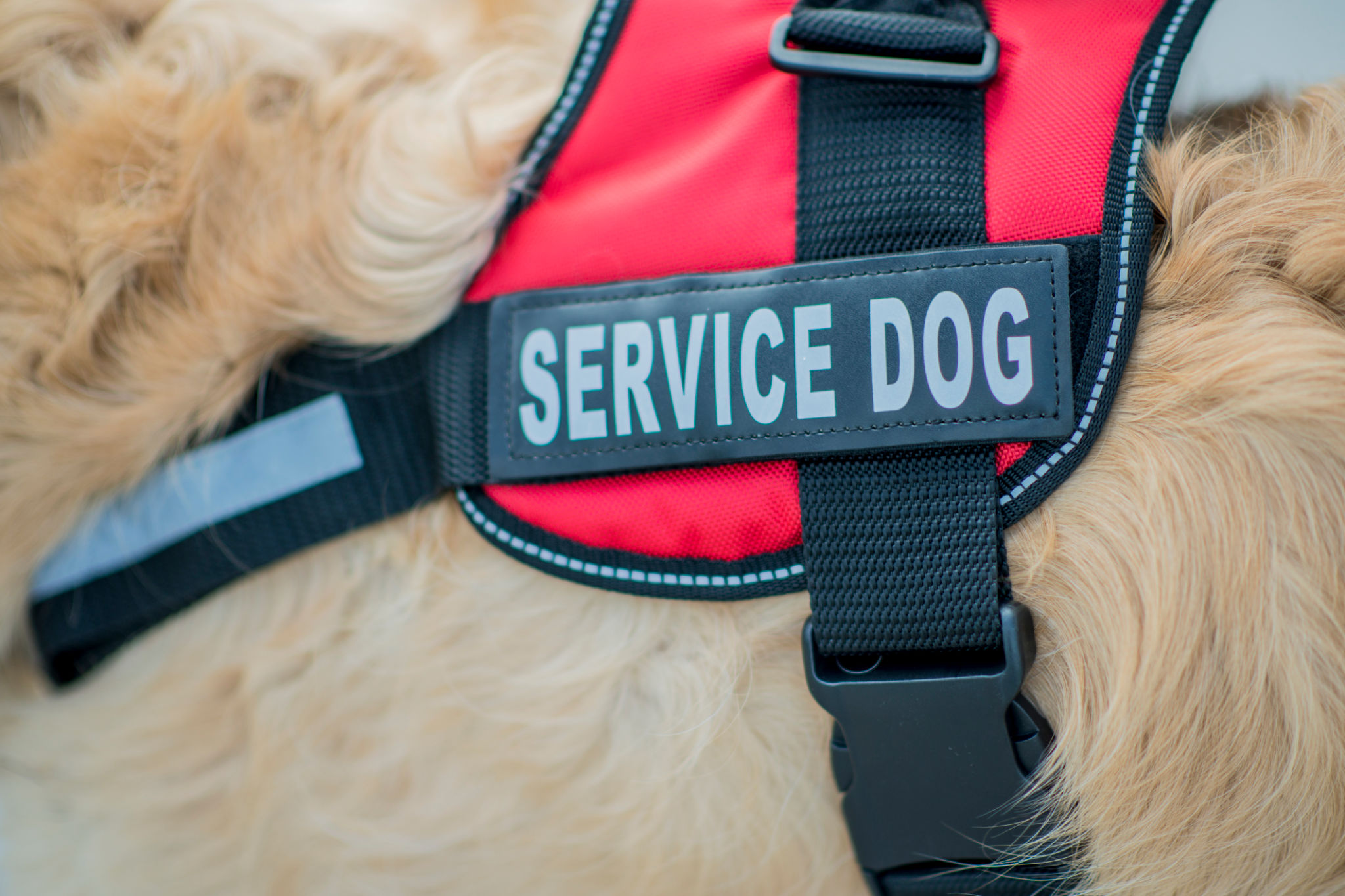Service Dog Certification? Debunking Common Misconceptions
Al
No, You Don’t Need a Service Dog Certificate—Here’s What You Actually Need.
Every year like clockwork, a new batch of websites pops up promising “Official Service Dog Certifications”—for the low, low price of $79.99.
Spoiler alert: They're fake.
Let’s set the record straight for 2025. Here's what you actually need to know about service dog documentation—and what you can confidently ignore.
✅ The Department of Transportation (DOT) and airlines do not require service dog certification — only an airline-specific DOT form verifying the dog’s training and behavior. Some airlines updated their forms in 2024, but no "service dog certificate" required.
✅ The U.S. Department of Justice (DOJ) released an updated ADA guidance in 2024 clarifying: service dogs are defined by their training to perform a task related to a disability — not by a certificate, vest, or ID card.
✅ The scams have gotten slicker — Some websites now guarantee "legal protection" if you purchase their certificate. Newsflash: You have zero legal protection from a piece of paper you bought online. Only a properly trained service dog and compliance with the ADA grants protection.
✅ Big legal risks in 2025: Falsely representing a non-service dog as a service dog is now a fineable offense in 37 states. In some places (like California), it’s even a misdemeanor. (Translation: Buying a $79 fake certificate can cost you a whole lot more.)
How Do I Certify or Register My Service Dog?
Many myths exist about service animals, from certification requirements to training standards. These misconceptions can create unnecessary confusion for handlers and the public. In this post, we will look at common miconceptions about service animals. We will use the ADA’s official guidelines to explain the truth.

Myth #1: Service Dogs Must Be Certified or Registered
Fact: The ADA does not require service dogs to have any kind of certification or registration. According to the ADA, “Covered entities may not require documentation, such as proof that the animal has been certified, trained, or licensed as a service animal, as a condition for entry.”
Some organizations sell "service animal certifications" or "registrations" online, but these documents do not provide any legal rights under the ADA. The Department of Justice does not recognize these certifications as proof that a dog is a legitimate service animal. Handlers should be aware that certification documents are not necessary and often lead to misunderstanding about what is required.
Do I need a certificate for a service dog to fly? No, but there are other forms you need to fill out.
Myth #2: Service Animals Must Be Professionally Trained
Fact: People with disabilities have the right to train their service dog themselves. The ADA states that “People with disabilities have the right to train the dog themselves and are not required to use a professional service dog training program.”
This means that while many handlers may choose to work with a professional trainer, especially for complex tasks, it is not legally required. Owners can train their dogs to meet their specific needs, as long as the dog performs tasks that directly mitigate the handler’s disability.
Myth #3: My Service Dog Needs to Pass a Public Access Test (PAT)
Fact: The ADA does not require service dogs to pass a Public Access Test (PAT). While a PAT is a common training benchmark for many service dog programs, it is not a legal requirement.
However, it is required that service dogs are well-trained and behaved for public settings to ensure they can handle different environments calmly and effectively. A PAT is a useful tool for handlers to assess their dog’s readiness, but passing such a test is not mandated by law.
Myth #4: Only Certain Breeds Can Be Service Dogs
Fact: The ADA does not limit service dogs by breed. According to the ADA, “The ADA does not restrict the type of dog breeds that can be service animals. A service animal may not be excluded based on assumptions or stereotypes about the animal’s breed or how the animal might behave.”
Some breeds are more common as service dogs because of their temperament or size. However, any breed can be a service dog if it can perform the required tasks reliably. However, if a service dog displays behavior that poses a direct threat to others or is out of control, it will must leave the premises.

Myth #5: Service Dogs Must Always Wear a Vest or Harness
Fact: The ADA does not require service dogs to wear a service dog vest, ID tag, or specific harness. Many handlers choose to use a vest or ID tag for easier identification in public, but this is entirely optional.
Some handlers may choose not to use a vest because of personal preference or the nature of their dog’s tasks. A vest can be a helpful signal to others that the dog is working, but under ADA guidelines, service dogs are not required to wear one.
Next Steps:
I help pet parents and service dog handlers navigate air travel, training, and real-world requirements legally and confidently. I go over the top question like "do I need a certificate for a service dog to fly?", "What paperwork is needed for a psychiatric service dog?" or "How to legally fly with a service dog" in our 1:1 calls.
👉 Schedule your free consultation call and let's get you (and your dog) flying like pros.
Learn More:
For further details on service animal requirements visit the ADA.gov site.
